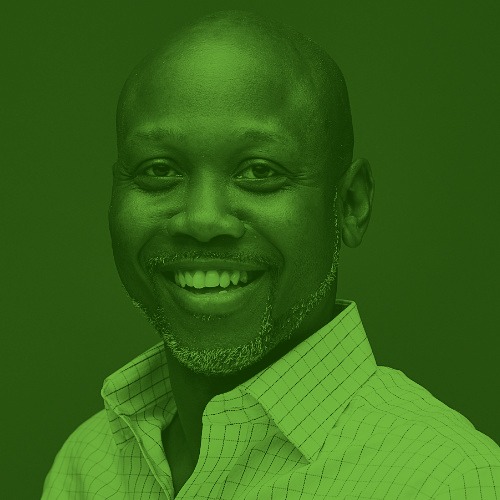Advisor Self-Limiting Beliefs and 3 Steps to Overcome Them
07.30.19 | Dominique Henderson | 0 Launch
“Sow a thought, reap an action; sow an action, reap a habit; sow a habit, reap a character; sow a character, reap a destiny.”
― Stephen Covey, The 7 Habits of Highly Effective People
I’ve read recently that Covey adapted this quote from Gandhi. Regardless of who said those words first, the quote holds the key to the kind of outstanding results you admire in high performers.
And I think that it’s the best expression of how mindset, behavior patterns, and results are connected.
The mind’s power extends beyond our immediate consciousness. Think of an iceberg with 90% of its mass submerged beneath the surface of the water; your subconscious mind is just as vast and powerful. And once something (a belief or a habit, for example) is a part of your subconscious mind, it will drive your daily choices without any surface awareness from you.
The continuum looks something like this:

Doesn’t working hard trump mindset?
If you’ve ever been conscripted into ballet or piano lessons as a child, the idea of routine practice probably came into play. You went to your lessons and followed instructions. You may have enjoyed some practice sessions and hated others. Regardless of how much enjoyment you got out of the process, if you did this long enough then you eventually developed a level of proficiency — perhaps a 5 or a 6 on a 10-point scale. This proficiency came from deliberately repeating certain routines over and over. Enjoyment and fun would have certainly made the experience more pleasant… but they were not required for you to improve, up to a point.
And if you didn’t want to take ballet or piano lessons, you were probably sabotaging your level of success subconsciously. Your brain was in effect limiting you at that 5 or 6 and putting an invisible ceiling on your progress. This is mindset at work.
Advisor self-limiting beliefs at work
As a financial advisor building a business, you are most likely not sabotaging yourself intentionally. However, your self-limiting beliefs could be doing just that below the surface.
Here are a few advisor self-limiting beliefs that seem to be quite popular. The internal dialog might sound something like this…
Advisor: I really hate sales.
Advisor self-limiting belief: No one has ever taught you to do sales right. You should hate it. You’re right, we suck at sales.
Advisor: Since I suck at sales, why should I spend time prospecting?
Advisor self-limiting belief: You’re right. Prospecting is just a waste of time.
Advisor: The reason I am having trouble finding prospects is because they don’t see me as an expert.
Advisor self-limiting belief: You are right. Hey, you should work on that new Alphabet Soup Designation! With another set of letters after your name, prospects will be impressed into signing on with you.
Sound familiar?
Let’s do some labeling for a minute. This internal dialogue starts from a mindset of “I’m not enough”. The advisor self-limiting belief basically just agrees and acts as a theme for you — unless you are willing to confront it.
Check out: Model FA Podcast #9: Featuring Dominique Henderson
What can advisors do about this vicious cycle?
The fact may well be that you’re not good at sales yet. But through practice, you can change that.
Here are some of the questions you can ask yourself to explore your next steps.
- Have you had sales training from someone who is better than you at sales? If the answer is “No,” consider picking up a great book about selling, signing up for a course with an expert, or getting yourself a coach.
- Have you employed the strategies/techniques that successful sales professionals have used? The best ideas in the world are worth nothing without diligent implementation. After you read that book, finish that course, or hire a coach, make a list of specific strategies and exercises you will commit to learning and using.
- What’s the underlying fear or belief that’s holding you back from committing 100% of your efforts to learning this new skill or trying a new approach? You might discover that you have a self-limiting belief. Perhaps you think you are too old to learn about digital marketing, or that you need just one more designation to truly position yourself as an authority figure. Look at those beliefs closely, because without pushing against them your progress will be modest at best.
Once you answer these questions, you can begin to address your deficiency so you can begin to close the skill gap.
Here’s a piece of good news. Every successful financial advisor has walked this path before. You must face the fact that you are responsible for bringing in new business, and the only way to get better is to practice.
Here are 3 steps to help you overcome advisor self-limiting beliefs.
- Record a prospecting call and have an objective 3rd party give you feedback on your technique and performance. Choose someone who you know is very good at sales and ask them to identify specific ways you can improve.
- Incorporate that feedback into a “modified” sales framework. You might write a script that you can reference in subsequent calls, or simple prompts that will help you have a more productive conversation.
- Rinse and repeat while monitoring your close ratio for improvements.
If your prospecting or sales results leave you in a cycle of despair and hopelessness, begin by examining your behavior patterns and underlying beliefs. If you want a real-life example of what that might look like, Patrick Brewer has had two coaching sessions with an advisor in our program using this same framework recently (Note: The link will take you to the private Facebook group for the Model FA, so you’ll have to join the group before you can watch the videos.)
As you will see in this real-life example, an objective 3rd party with more sales experience than the advisor can help identify bind spots and brainstorm tactical solutions. The ultimate goal of a feedback session like this is to break the advisor out of the loop of a low conversion rate with prospects. This takes work and the willingness to make a change — but it’s within your reach. As your mindset shifts from “I’m not enough” to “I’m enough” or “I can be enough”, you will begin to see stronger results, better-fit clients, and a brighter future for your firm.
What advisor self-limiting beliefs have held you back in the past? Share in the comments, you might just help someone in the group overcome a major obstacle.
